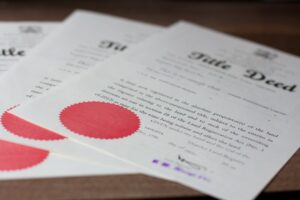Property Disputes in Thailand. Property and real estate disputes in Thailand are a significant concern for both local and foreign investors. The Thai legal system, with its unique blend of civil law traditions and local customs, provides various mechanisms for resolving these disputes. Understanding the legal landscape, common causes of disputes, and the available remedies is crucial for anyone involved in real estate transactions in Thailand. This article delves into the intricacies of property and real estate disputes in Thailand, offering a comprehensive overview of the legal framework, common issues, and practical considerations.
Legal Framework Governing Property Disputes in Thailand
Thailand’s property laws are primarily governed by the Civil and Commercial Code (CCC), which outlines the rights and obligations of property owners, tenants, and other stakeholders. Additionally, specific laws and regulations, such as the Land Code, the Condominium Act, and the Lease of Immovable Property Act, play critical roles in property transactions and dispute resolution.
1. Civil and Commercial Code (CCC)
The CCC is the cornerstone of Thai property law. It defines ownership rights, contractual obligations, and the procedures for resolving disputes. The CCC provides for various types of property rights, including ownership, possession, leasehold, and servitude, each with its own legal implications.
2. Land Code
The Land Code regulates the ownership, transfer, and registration of land in Thailand. It is particularly relevant for foreign investors, as it outlines the restrictions on foreign ownership of land and the legal mechanisms available for acquiring property, such as long-term leases and the establishment of a Thai company.
3. Condominium Act
The Condominium Act governs the ownership and management of condominium units in Thailand. It addresses issues such as the rights and responsibilities of unit owners, the role of the condominium juristic person, and the process for resolving disputes within a condominium development.
4. Lease of Immovable Property Act
This Act outlines the legal framework for leasing immovable property in Thailand. It covers the rights and obligations of landlords and tenants, lease registration requirements, and the procedures for terminating a lease or resolving lease-related disputes.
Common Causes of Property and Real Estate Disputes
Property and real estate disputes in Thailand can arise from various issues, often involving contractual disagreements, misunderstandings about property rights, or regulatory compliance. Some of the most common causes of disputes include:
1. Boundary Disputes
Boundary disputes are a frequent cause of conflict, especially in rural areas where land demarcation may be unclear or poorly documented. Disagreements over property boundaries can lead to legal battles, particularly when one party encroaches on another’s land.
2. Ownership Disputes
Disputes over property ownership often arise from unclear or contested title deeds. In Thailand, it is not uncommon for multiple parties to claim ownership of the same piece of land, especially if the land has been passed down through generations without proper documentation.
3. Contractual Disputes
Contractual disputes are prevalent in real estate transactions, particularly when one party fails to fulfill their obligations under a sale, lease, or construction contract. Issues such as delayed payments, failure to deliver the property as agreed, or disputes over contract terms can lead to legal action.
4. Construction Disputes
Disputes related to construction projects are also common, often involving disagreements over the quality of work, delays in completion, or cost overruns. These disputes can escalate into legal battles, particularly if the project involves significant investments.
5. Lease Disputes
Lease disputes typically arise from disagreements over rent payments, lease terms, or the condition of the leased property. Conflicts may also occur when a landlord attempts to terminate a lease prematurely or when a tenant refuses to vacate the property at the end of the lease term.
Dispute Resolution Mechanisms
Thailand offers several mechanisms for resolving property and real estate disputes, ranging from informal negotiations to formal litigation. The choice of mechanism depends on the nature of the dispute, the parties involved, and the desired outcome.
1. Negotiation and Mediation
Negotiation and mediation are often the first steps in resolving property disputes. These methods involve the parties attempting to reach an agreement without resorting to litigation. Mediation, in particular, is encouraged in Thailand, as it is a less adversarial and more cost-effective way of resolving disputes.
The Thai government and various professional bodies, such as the Thai Chamber of Commerce, offer mediation services to help parties reach a settlement. Mediation can be particularly effective in resolving disputes within a condominium development or between neighbors.
2. Arbitration
Arbitration is a more formal dispute resolution mechanism that involves presenting the case to an independent arbitrator or panel of arbitrators. The arbitrator’s decision is binding on the parties and can be enforced by the courts. Arbitration is often used in commercial real estate disputes, particularly those involving foreign investors, as it allows for a more neutral forum and can be faster than traditional litigation.
Thailand’s Arbitration Act B.E. 2545 (2002) governs the arbitration process, and the country is a signatory to the New York Convention, which facilitates the enforcement of arbitral awards across borders.
3. Litigation
Litigation is the most formal and legally binding method of resolving property disputes in Thailand. Disputes are brought before the courts, where a judge will hear the case and issue a judgment. The Thai legal system includes several levels of courts, with the Civil Court being the primary venue for property disputes.
Litigation can be a lengthy and expensive process, particularly if the case involves complex legal or factual issues. However, it may be the only option if the parties cannot reach an agreement through negotiation, mediation, or arbitration.
Challenges in Resolving Property Disputes
Resolving property and real estate disputes in Thailand can be challenging, particularly for foreign investors who may be unfamiliar with the legal system and cultural nuances. Some of the key challenges include:
1. Complex Legal Framework
The complexity of Thai property laws, combined with the overlapping regulations governing different types of property and real estate transactions, can make it difficult to navigate the legal landscape. Understanding the various legal requirements and procedures is essential for resolving disputes effectively.
2. Language and Cultural Barriers
Foreign investors may face language and cultural barriers when dealing with property disputes in Thailand. These barriers can complicate negotiations, contract interpretation, and court proceedings. It is often advisable for foreign investors to seek the assistance of legal professionals who are fluent in both Thai and their native language.
3. Delays in the Legal Process
The Thai legal system can be slow, particularly in complex property disputes. Delays in court proceedings, coupled with the possibility of appeals, can prolong the resolution process, leading to increased costs and uncertainty for the parties involved.
4. Enforcement of Judgments
Enforcing court judgments or arbitral awards can be challenging, particularly if the losing party is unwilling to comply. In some cases, the winning party may need to take additional legal action to enforce the judgment, such as seeking a court order for the seizure of assets.
Practical Considerations for Avoiding Property Disputes
While it may not be possible to avoid all property disputes, taking certain precautions can help mitigate the risks and protect your interests:
1. Conduct Thorough Due Diligence
Before entering into any real estate transaction in Thailand, it is crucial to conduct thorough due diligence. This includes verifying the ownership and title of the property, ensuring compliance with zoning and land use regulations, and reviewing any existing contracts or leases. Due diligence can help identify potential issues before they escalate into disputes.
2. Engage Professional Legal Assistance
Engaging a qualified lawyer with experience in Thai property law is essential for navigating the legal complexities of real estate transactions and disputes. A lawyer can provide valuable advice, draft contracts, and represent your interests in negotiations, arbitration, or litigation.
3. Consider Alternative Dispute Resolution (ADR)
When drafting contracts, consider including clauses that mandate the use of alternative dispute resolution (ADR) methods, such as mediation or arbitration, before resorting to litigation. ADR can provide a faster, more cost-effective way to resolve disputes.
4. Document Everything
Maintaining thorough documentation of all real estate transactions, communications, and agreements is essential for protecting your interests. Clear and accurate records can serve as crucial evidence in the event of a dispute.
Conclusion
Property and real estate disputes in Thailand are a complex and multifaceted issue, influenced by the country’s legal framework, cultural practices, and the specific circumstances of each case. Whether you are a local or foreign investor, understanding the potential causes of disputes, the available resolution mechanisms, and the challenges involved is essential for protecting your interests and achieving a favorable outcome.
By conducting due diligence, engaging professional legal assistance, and considering alternative dispute resolution methods, you can minimize the risks and navigate the complexities of property and real estate disputes in Thailand with greater confidence.






















